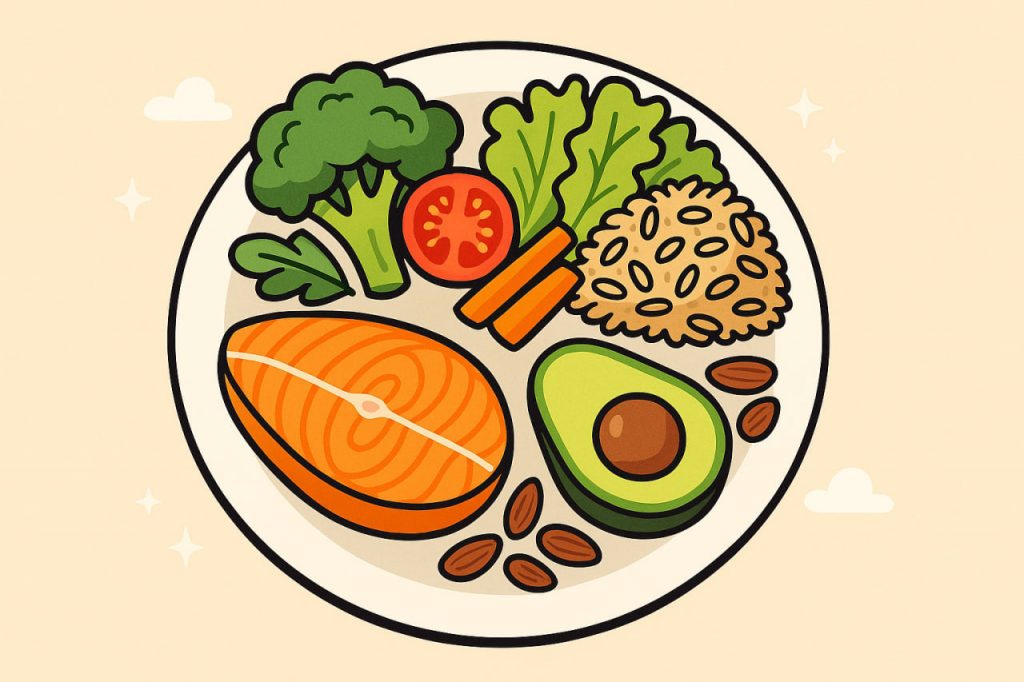A balanced diet is the foundation of good health, but this doesn’t mean you need to follow strict or restrictive diets. Instead of eliminating foods, the goal is to combine different food groups in the right proportions to provide the body with all essential nutrients. By focusing on variety, moderation, and consistency, anyone can achieve a healthy and sustainable way of eating.
Key Principles of a Balanced Diet
A balanced diet includes the proper proportions of proteins, fats, carbohydrates, vitamins, and minerals. Each nutrient plays a unique role in supporting the body:
- Proteins build muscles, repair tissues, and support immunity.
- Carbohydrates provide energy, especially when chosen from whole grains and vegetables.
- Fats are essential for brain function and hormone balance, particularly healthy unsaturated fats.
- Vitamins and minerals regulate metabolism, strengthen bones, and support the nervous system.
Focus on Whole Foods
Instead of processed and sugary foods, prioritize:
- Fruits and vegetables for fiber, vitamins, and antioxidants.
- Whole grains such as brown rice, oats, and whole-grain bread.
- Lean proteins like chicken, fish, legumes, and eggs.
- Healthy fats from avocados, nuts, seeds, and olive oil.
Portion Control and Moderation
Balancing the diet doesn’t mean giving up favorite foods completely. Occasional treats are fine if eaten in moderation. Using smaller plates, avoiding oversized portions, and paying attention to hunger cues can help prevent overeating.
Hydration Matters
Water plays a key role in a balanced diet. It aids digestion, regulates temperature, and transports nutrients. Replacing sugary drinks with water or herbal tea can reduce excess calories without effort.
Avoiding Common Mistakes
- Skipping meals can lead to overeating later.
- Relying too much on packaged “diet” foods often adds hidden sugars or fats.
- Following overly restrictive rules increases stress and decreases long-term success.
Sustainable Habits Over Time
The best way to balance your diet is by developing sustainable habits. Cooking at home, planning meals, and including all food groups in reasonable amounts helps maintain energy, mood, and overall health without dieting.
Conclusion
Balancing your diet does not require strict rules or exclusions. By combining whole foods, controlling portions, staying hydrated, and practicing moderation, you can create a sustainable eating pattern that supports long-term health and well-being—without the stress of diets.
Glossary
- Whole foods – minimally processed foods rich in nutrients.
- Unsaturated fats – healthy fats found in plants and fish.
- Portion control – managing the amount of food eaten in one sitting.
- Antioxidants – substances that protect the body from cell damage.
- Sustainable habits – lifestyle choices that can be maintained long-term.


